World Diplomacy

How does sports diplomacy contribute to international relations ?
Sports diplomacy is a form of soft power that uses sports events and activities to foster relationships between nations. It contributes to international relations by enhancing mutual understanding, promoting economic cooperation, and promoting peace and security. Sports diplomacy promotes cultural exchange and builds trust between nations. It also attracts investment, creates job opportunities, reduces tensions, and enhances security cooperation. Overall, sports diplomacy plays a crucial role in building stronger relationships between nations.

How does space exploration impact global cooperation and diplomacy ?
Space exploration has been a significant driver of global cooperation and diplomacy since the dawn of the space age. The pursuit of understanding our universe and the quest to explore beyond Earth's boundaries have fostered international collaboration, technological advancements, and diplomatic engagements that transcend traditional geopolitical tensions. In this discussion, we will delve into the various ways space exploration influences global cooperation and diplomacy.
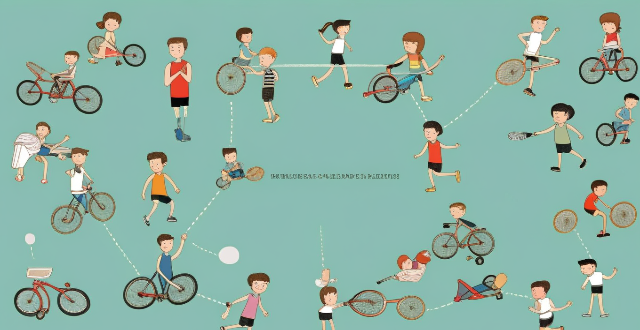
Is it possible for sports to transcend political differences and bring nations together ?
The article discusses the potential of sports to transcend political differences and bring nations together. It highlights three key ways in which sports can achieve this: through competition, cultural exchange, and diplomacy. The power of sports is demonstrated through various examples, such as the Olympics, World Cup, NBA, Formula One, Ping-Pong Diplomacy, and Peace Games. The article concludes that while political conflicts may still exist outside of sports, these activities provide a platform for positive interactions and collaboration that can lead to lasting change.
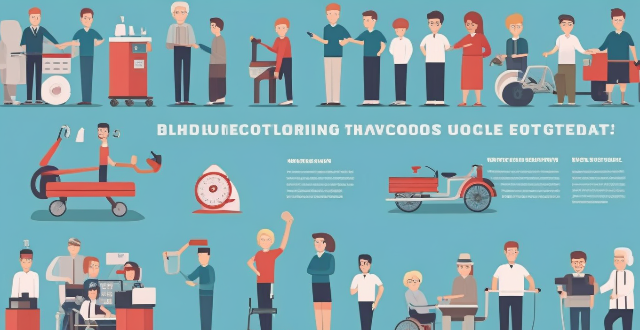
How can sports diplomacy be leveraged to improve relations between nations ?
Sports diplomacy is a powerful tool for improving international relations by using sports as a universal language to break down barriers, promote peace, and foster understanding. This can be achieved through organizing international events and cultural exchange programs, supporting youth exchanges and community-based initiatives, involving influential sports figures in diplomatic missions, and utilizing media and public platforms to engage wider audiences. By leveraging the power of sports, nations can improve their relationships in a constructive and engaging manner, serving as a soft power strategy with far-reaching benefits.

What are the ethical considerations when sports are used in international diplomacy ?
Sports have been used as a tool for international diplomacy, but there are ethical considerations to take into account. These include respecting cultural differences, promoting fairness and equity, avoiding political manipulation, and protecting athletes' rights. By doing so, sports can continue to serve as a positive force for building bridges between nations.

Have there been any instances where sporting events have led to improved diplomatic relations ?
Sporting events have been used to improve diplomatic relations between countries, bringing people together regardless of their backgrounds or beliefs. Examples include Ping-Pong diplomacy in the 1970s between China and the US, soccer matches promoting peace in the Middle East, the Olympic Truce symbolizing goodwill and cooperation, and rugby matches representing reconciliation and forgiveness.
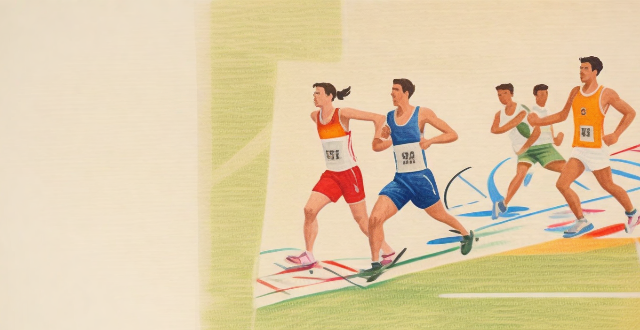
What are some examples of sports events that have promoted international peace ?
This article discusses the role of sports events in promoting international peace and understanding. It highlights the Olympic Games and the FIFA World Cup as two major sporting events that have brought together athletes from around the world to compete in a spirit of friendship, solidarity, and fair play. The article also mentions other events like the Peace and Sport Forum, the United Nations Office on Sport for Development and Peace (UNOSDP), and the Commonwealth Games, which serve as platforms for cultural exchange and diplomacy between participating countries. Overall, the article emphasizes the importance of using sport as a tool for promoting peace and building bridges between nations.
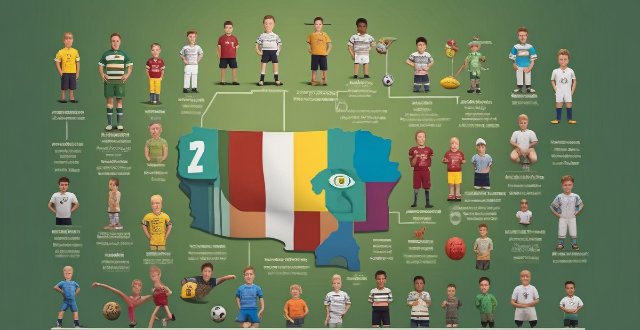
Which country has won the most FIFA World Cup titles ?
The country that has won the most FIFA World Cup titles is Brazil, with a total of five (5) titles. The Brazilian national football team is widely considered one of the most successful in the history of the sport. Other countries that have achieved significant success in the World Cup include Germany, Italy, Argentina, and Uruguay.

Can you recommend some breathtaking yet less crowded hiking trails around the world ?
This guide recommends breathtaking yet less crowded hiking trails around the world, from the Sierra Nevada in California to the Himalayas in Nepal. It offers highlights and crowd avoidance tips for each trail.

What is the role of the World Health Organization (WHO) in promoting global health ?
The World Health Organization (WHO) plays a crucialThe World Health Organization (WHO) plays a crucial by providing leadership, setting norm WHO's work is focused on improving health outcomes worldwide through various activities such as convening stakeholders, establishing international standards for health, generating scientific knowledge to inform policy decisions, providing technical support to countries, and monitoring global health trends.

What are the must-visit family-friendly attractions around the world ?
Traveling with family is an amazing experience that creates lasting memories. Here are some of the must-visit family-friendly attractions around the world: 1. Disneyland Paris, France 2. Universal Studios Hollywood, USA 3. Tokyo DisneySea, Japan 4. Legoland Deutschland, Germany 5. LEGOLAND Florida Resort, USA 6. Efteling, Netherlands

How can women overcome gender bias in the startup world ?
Gender bias is a pervasive issue in many industries, including the startup world. Women face unique challenges when it comes to funding, networking, and building their businesses. However, there are strategies that women can employ to overcome these obstacles and thrive in the startup world. Here are some tips: 1\. Build a Strong Network: Networking is crucial for any entrepreneur, but it's especially important for women who may not have as many natural connections in the industry. Attend industry events, join professional organizations, and connect with other entrepreneurs on social media. Make sure to diversify your network by seeking out people from different backgrounds and perspectives. 2\. Develop Your Skills: Take courses or attend workshops to develop your skills in areas such as finance, marketing, and management. This will not only make you a more well-rounded entrepreneur but also demonstrate your commitment to learning and growing. 3\. Be Confident and Assertive: Women are often socialized to be polite and deferential, which can sometimes hold them back in business settings. Practice being confident and assertive in meetings and negotiations. Remember that you deserve to be taken seriously and that your ideas and opinions are valuable. 4\. Seek Out Mentors and Advisors: Find mentors or advisors who can offer guidance and support as you navigate the startup world. Look for people who have experience in your industry and who share your values and goals. 5\. Leverage Your Strengths: Women often bring unique strengths to the table, such as empathy, collaboration, and creativity. Emphasize these qualities in your pitches and marketing materials, and don't be afraid to highlight how they set you apart from your competitors. 6\. Stay Persistent: Starting a business is hard work, and there will inevitably be setbacks along the way. Stay persistent and focused on your goals, even when faced with rejection or failure. Remember that every challenge is an opportunity to learn and grow. 7\. Advocate for Yourself and Others: Speak up about issues of gender bias and inequality whenever you see them. Use your platform to advocate for change within your industry and support other women who are facing similar challenges. By working together, we can create a more equitable and inclusive startup world for all entrepreneurs.

What are some examples of successful disability sports organizations or events around the world ?
Disability sports have been gaining popularity and recognition worldwide, with many organizations and events showcasing the talent and determination of athletes with disabilities. Here are some examples of successful disability sports organizations and events around the world: 1. Paralympic Games: An international multi-sport event for athletes with physical and intellectual disabilities, held immediately after the Olympic Games in the same host city. 2. Special Olympics World Games: A global event for athletes with intellectual disabilities, offering competition in various sports such as swimming, athletics, and basketball. 3. International Wheelchair Basketball Federation (IWBF): The governing body for wheelchair basketball worldwide, organizing international competitions and promoting the development of wheelchair basketball across different regions. 4. Cerebral Palsy Football World Cup: A biennial international football tournament for players with cerebral palsy, providing an opportunity for these athletes to showcase their skills and promote awareness about cerebral palsy. 5. International Blind Sports Association (IBSA): Dedicated to promoting sports for visually impaired athletes, organizing world championships and other events in various sports such as goalball, judo, and swimming. 6. World Deaf Volleyball Championships: An international competition for deaf volleyball players, promoting the development of deaf sports and providing a platform for deaf athletes to showcase their talent and compete at the highest level. 7. World Dwarf Games: A multi-sport event specifically designed for individuals with dwarfism, offering a range of sports such as swimming, track and field, and powerlifting, providing opportunities for athletes with dwarfism to compete and showcase their abilities.

In what ways does sports culture contribute to national identity ?
Sports culture significantly contributes to national identity by representing national values, promoting cultural exchange and diplomacy, preserving historical traditions, evoking national pride and unity, and enhancing economic growth. It serves as a powerful tool for uniting people under a common banner and showcasing the unique character of a nation to the world.

How does sports culture affect the economy, both locally and internationally ?
The text discusses the impact of sports culture on the economy, highlighting its benefits at both local and international levels. It mentions increased tourism, job creation, infrastructure development, and revenue generation as key ways in which sports culture affects the local economy. Additionally, it notes that hosting major sporting events can lead to infrastructure development and improved quality of life for residents. At the international level, the article emphasizes the role of sports culture in global branding efforts, economic growth, and diplomacy. It points out that successful athletes and teams become ambassadors for their countries, promoting national pride and cultural identity. This exposure can lead to increased tourism and investment in the country. Moreover, international sporting events create opportunities for businesses to expand into new markets and foster positive relations between countries through sports diplomacy.

In what ways does sports culture influence political discourse and international relations ?
The text discusses how sports culture significantly impacts political discourse and international relations. It highlights various ways this influence manifests, including promoting diplomacy and peace, fueling nationalism and identity, driving economic development, advocating for social issues, and shaping public opinion through media representation. The article also mentions specific examples such as "Ping-Pong Diplomacy," Olympic Truce, and the involvement of sports figures in peace agreements. It underscores the role of sports in cultural exchange, global marketplace activities, brand promotion, and environmental concerns. Additionally, it touches upon the use of sports for propaganda purposes, controversies like doping scandals, and their effects on international perceptions. Overall, the text emphasizes that sports culture is a potent force intertwined with global dynamics, reflecting and shaping interactions between nations.

Can sports events promote peace between nations ?
Sports events can promote peace between nations by breaking down barriers, fostering cultural exchange, and providing a platform for diplomatic engagement. Historical and modern-day examples show the potential of sports diplomacy, but challenges such as political interference and commercialization must be considered. Overall, sports have the power to bring people together and promote understanding, making them a valuable tool for promoting peace.

Can sports be used as a tool for soft power and influence in international politics ?
**Sports as a Tool for Soft Power and Influence in International Politics:** **Cultural Diplomacy:** Sports events offer platforms for countries to showcase their culture and history, fostering people-to-people exchanges that can lead to improved diplomatic relations. **Economic Impact:** Major sporting events can boost tourism and attract foreign investment, with infrastructure developments benefiting the host country's economy long-term. **Political Influence:** Sports diplomacy allows for informal discussions between politicians, symbolizing national strength and unity through successful hosting or victories. **Challenges and Limitations:** Considerations include resource allocation concerns, potential for political conflicts during events, and issues of commercialization affecting sports' role in soft power initiatives.

Can international cooperation help mitigate climate-related conflicts ?
The text discusses how climate change can exacerbate conflicts and the role of international cooperation in mitigating these impacts. It outlines various challenges posed by climate change, such as water scarcity, food insecurity, natural disasters, and economic instability, and how they can lead to conflicts. The text then explores the potential roles of international cooperation, including diplomacy, technology transfer, financial support, education, and capacity building. It also highlights challenges to achieving effective international cooperation, such as political will, economic disparities, and cultural differences. Finally, the text concludes that international cooperation is essential in addressing climate-related conflicts and that collaborative efforts can lead to a more resilient and equitable world.
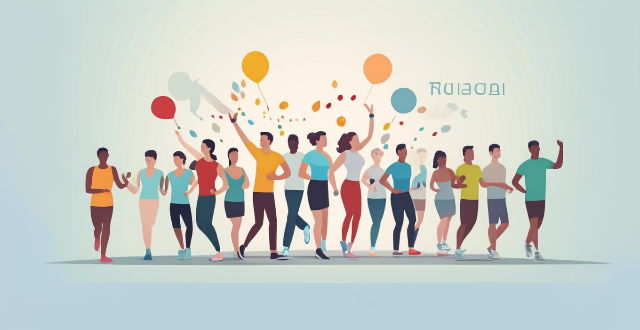
What role do international sports organizations play in fostering global cooperation ?
International sports organizations are crucial for global cooperation, promoting peace, cultural exchange, economic development, health, gender equality, environmental sustainability, and humanitarian aid.

How has the Clean Energy Revolution influenced international relations ?
The clean energy revolution is transforming international relations by introducing new dynamics of competition and cooperation, redefining economic interests, and creating novel avenues for diplomatic engagement. Key areas of impact include: 1. Economic Competition and Cooperation: Countries compete for resources critical to clean energy technologies, vie for technology leadership, seek export markets, and create green economies. 2. Environmental Diplomacy: The Paris Agreement and other pacts foster cooperation on climate action, shared environmental goals strengthen diplomatic relations, and international institutions facilitate agreements on clean energy and climate issues. 3. Geopolitical Strategies: Countries enhance their energy security by reducing dependence on fossil fuels, wield influence through sustainability expertise, and use clean energy policies as tools in diplomacy or sanctions. 4. Development Assistance and Capacity Building: Wealthy nations and organizations provide financial assistance and technology transfer to help developing countries adopt clean energy solutions and build institutional capacity. As countries adapt to the clean energy revolution, their interactions will continue to be influenced by sustainable development goals and efforts to mitigate climate change.
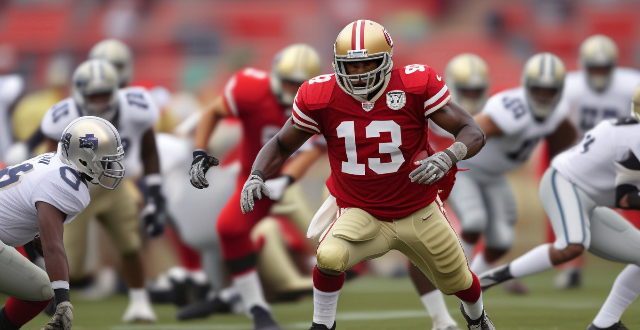
Who won the last World Cup in football ?
The last World Cup in football was won by Argentina, with Lionel Messi leading the team to their third championship. Brazil also has a long history of success, with their last victory in 2002.

What role do international sports organizations play in promoting peace through sport ?
International sports organizations contribute significantly to promoting peace through various initiatives. These include building bridges and enhancing diplomatic relations by promoting diplomacy and cultural exchange, providing platforms for youth development through empowerment and creating opportunities, advocating for gender equality and inclusivity, contributing to humanitarian efforts like disaster relief and peace missions, and educating about peace and conflict resolution through awareness campaigns and partnerships with peace organizations.

When is the next FIFA World Cup scheduled ?
The 2026 FIFA World Cup will be held from June 8 to July 19, 2026, in multiple cities across Canada, Mexico, and the United States. This marks the first time the tournament is hosted by more than one country, signaling a broader sharing of the event's benefits and fostering greater cultural exchange. The decision to expand hosting rights is expected to have significant economic and promotional impacts on football globally.

What are the ethical considerations of space exploration and colonization ?
The article discusses the ethical considerations of space exploration and colonization, emphasizing the importance of balancing potential benefits with risks, considering environmental impact, addressing interplanetary diplomacy, and developing a comprehensive legal and regulatory framework. It highlights the need for a strong ethical framework to ensure responsible and sustainable pursuit of space endeavors.